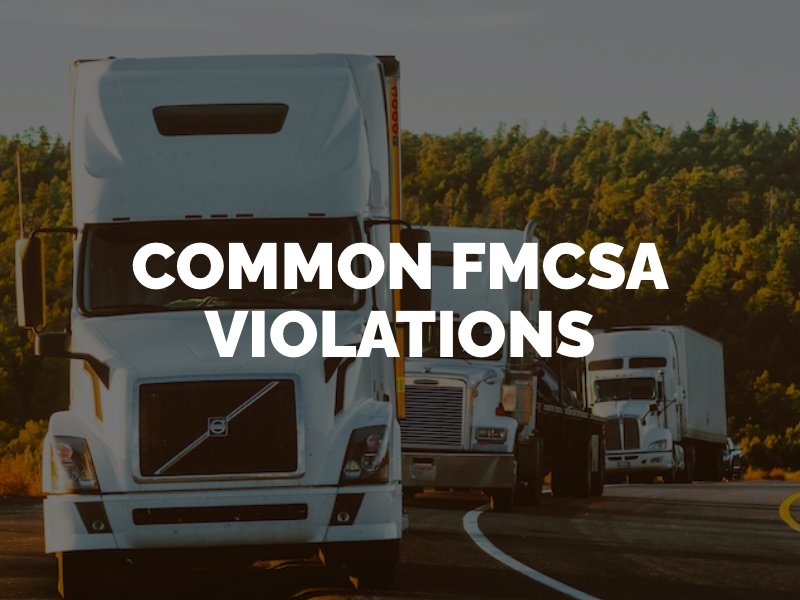Common FMCSA Violations
The risks involved in the trucking industry call for federal safety rules and regulations. The governing body that enforces common carrier laws is the Federal Motor Carrier Safety Administration (FMCSA). Every year, serious and fatal truck accidents occur due to FMCSA law violations. After a truck accident, a victim can potentially seek financial compensation by holding the party that violated an FMCSA law accountable.

Moving Violations
The FMCSA’s Motor Carrier Safety Planner (Section 6.3.12) includes a table that lists some of the most common violations associated with commercial motor vehicle drivers. At the top of this list is “moving violations.” A moving violation refers to a traffic offense that is committed while a commercial motor vehicle is in motion.
Common examples include:
- Speeding
- Running a red light
- Rolling through a stop sign
- Making an illegal lane change
- Failing to yield the right-of-way
- Following others too closely
- Reckless driving
Any truck driver who breaks a traffic law or fails to follow a road sign may be guilty of a moving violation. These dangerous errors can increase the odds of the truck getting into a traffic accident with one or more other vehicles.
Using a Handheld Cell Phone While Driving
Most states have outlawed handheld cell phone usage for commercial drivers. This is because the use of a cell phone while driving is an extremely dangerous form of driver distraction. If a truck driver is manipulating a cell phone to text or make phone calls, he or she may miss traffic signs or fail to notice changing roadway situations. This can result in the driver having delayed reactions and causing a truck accident.
Drug and Alcohol Use
The FMCSA has strict rules against drug and alcohol usage by commercial drivers. Trucking companies must test their drivers for the presence of drugs and alcohol during the hiring process, after any traffic accidents and at random. If a truck driver is guilty of operating a big rig under the influence of drugs or alcohol, he or she could cause a catastrophic collision. This may result in criminal charges being brought against the truck driver in addition to liability for the crash.
Hours-of-Service Violations
Hours-of-service (HOS) laws limit the number of hours a truck driver can work without taking a rest break. These laws are crucial for preventing drowsy driving accidents in an industry where drivers are often tired due to long hours on the road, overnight drives and medical issues such as sleep apnea. If a driver exceeds his or her HOS restrictions, this greatly increases the odds of a drowsy driving truck accident.
Failing to Properly Secure Cargo
If a semi-truck is not loaded and secured properly, issues with the cargo can lead to a variety of truck accidents, such as an imbalanced truck that rolls over or lost load accidents. The FMCSA’s cargo securement rules require certain measures to help prevent cargo shifting or falling in transit. The transportation of hazardous materials also has its own set of laws. The party responsible for loading and securing cargo may be held liable if a rule is violated and this leads to an accident.
How Can Hiring a Truck Accident Attorney Help You?
If you get involved in a truck accident in California, it is important to consult with an attorney who specializes in these personal injury cases. Your Los Angeles truck accident lawyer can search for evidence of fault, including FMCSA code violations. Then, your lawyer can use this to prove fault and hold the trucking company or truck driver responsible. An attorney will seek maximum compensation for your losses from an at-fault party while you concentrate on healing.
